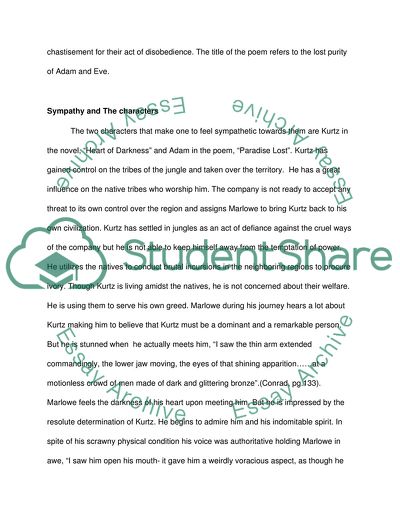Cite this document
(Paradise Lost vs. Heart of Darkness Literature review, n.d.)
Paradise Lost vs. Heart of Darkness Literature review. https://studentshare.org/literature/1546160-paradise-lost-vs-heart-of-darkness
Paradise Lost vs. Heart of Darkness Literature review. https://studentshare.org/literature/1546160-paradise-lost-vs-heart-of-darkness
(Paradise Lost Vs. Heart of Darkness Literature Review)
Paradise Lost Vs. Heart of Darkness Literature Review. https://studentshare.org/literature/1546160-paradise-lost-vs-heart-of-darkness.
Paradise Lost Vs. Heart of Darkness Literature Review. https://studentshare.org/literature/1546160-paradise-lost-vs-heart-of-darkness.
“Paradise Lost Vs. Heart of Darkness Literature Review”. https://studentshare.org/literature/1546160-paradise-lost-vs-heart-of-darkness.


